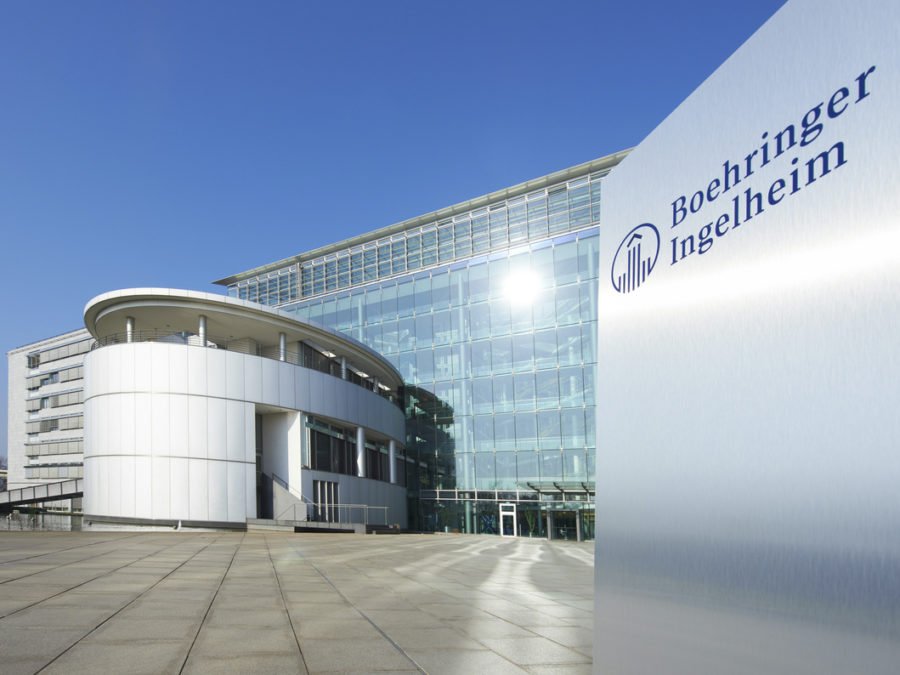Boehringer Ingelheim’s road to digitisation
May 14, 2019 | Tuesday | News
Set up in July 2017 with an investment of Euro 20 million to test new technologies quickly and efficiently and to develop innovative digital products, BI X is at the forefront of the company’s efforts to ride the digital wave.
image credit- shuttershock.com
From drug discovery to analysing speech patterns for detecting brain disorders and many other possibilities Boehringer Ingelheim is exploring and trying a wide range of new ideas by jumping on a digital bandwagon. Artificial intelligence-supported software, virtual molecular models and open innovations are currently finding their way into Boehringer Ingelheim’s research laboratories at Ingelheim (Germany) with a goal to develop better medicines.
“For us Digitalisation is the generic term for new technologies for employing data – that is capturing, processing and analysing – and the automated steering of processes,” said Hubertus von Baumbach, Chairman of the Board of Managing Directors of Boehringer Ingelheim.
One can hear many acronyms like ADAM, NTC, BRASS, PSP, BI X in the vicinity of the company’s sprawling campus here. ADAM stands for Advanced Design Assistant for Molecules while PSP for Pathological Speech Processing, NTC stands for “New Therapeutic Concepts”, And BI X is the digital lab set by the company to focus on the development of innovative digital healthcare products and solutions.
Set up in July 2017 with an investment of Euro 20 million to test new technologies quickly and efficiently and to develop innovative digital products, BI X is at the forefront of the company’s efforts to ride the digital wave. “The company recently topped up its corporate venture fund with an extra €50 million earmarked specifically for digital health investments,” said Michael Schmelmer, Member of the Board of Managing Directors responsible for Finance. He also funded BI X and is in charge of it. He described in detail the process and the possible timelines for ideas getting converted into rollouts and explained how 60 ideas finally get converted into roll outs.
ADAM is an application effectively used in drug development for sorting molecules. It constantly keeps updating its algorithms by adding new information as well as using the data from countless current and previous company projects from the company’s 50 years of archives. Using this information, within a few seconds each assistant in ADAM informs scientists about what is known about a molecule variant at Boehringer Ingelheim, without users having to search for it every time, making the life easier for the drug developers. “Thanks to digital assistants, we will be able to work much more efficiently in the near future,” remarked Dr Matthias Zentgraf from the research department.
PSP, the company’s programme which can monitor speech patterns to diagnose mental illness, is ready to start clinical trials. Using machine learning, the programme analyses speech patterns to detect brain disorders. Graphical analysis of the speech indicates the possibility of the mental disorder since the speech graphs of a healthy person differs from one with mental disorders. The minor differences in the graph could be detected by the computer. The company wants to develop PSP as a diagnostic tool.
A digital assistant called BRASS will soon be available for medical scientists of the company for phramacovigilance. The experts can enter their own experiences and assessments we well as background information in the application. Using various analytical methods BRASS can independently develop new findings. It can place data in the context of biomedical expertise.
Researchers need to identify the most relevant disease mechanisms they want to address for a drug discovery. The NTC studio application combines and analyses data from the widest range of internal and external sources. “The volume of information that is relevant for our research comes from all over the world and increases every day,” said Dr Jan Kriegl, Project Leader. He added, “Thanks to NTC Studio, researchers have access to many different sources and are always up- to-date with the current state of research.”
“Digital technologies help us to identify relevant disease mechanisms, to discover promising molecules and to explore the unexpected far beyond current horizons – through open innovation. The time, quality and knowledge we gain thereby will above all benefit our patients worldwide,” explained Dr Michel Pairet, Member of the Board of Managing Directors with responsibility for the Innovation Unit.
According to Schmelmer, the future technologies and the trends in the digital health will be 3D bio engineering & tissue engineering and drugs tested on virtual models. In this changing world, “the key challenge for us is to enable BI to seize these opportunities rapidly and efficiently,” he said and added the complex, expensive and time consuming process of discovering and developing new medicines will be revolutionised with the digital transformation in line with the company’s motto – better, faster, further.
Milind Kokje
(The writer was invited by Boehringer Ingelheim to its headquarters in Germany)









